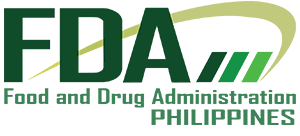Last October 18, 2019, the U.S. Food and Drug Administration (USFDA) has issued a safety alert warning for consumers not to use certain cosmetic products that tested positive for asbestos. Accordingly, a voluntary recall was undertaken by Johnson and Johnson Consumer Inc. (JJIC) for Johnson’s Baby Powder solely in the United States, relative to a single batch of products (lot #22318RB), as a precautionary move. This was in response to USFDA test indicating the presence of trace levels of chrysotile asbestos contamination in a sample taken from a single bottle purchased from an online retailer. Another sample from another lot of the product, tested negative for asbestos. The Philippine Food and Drug Administration (FDA) was informed by the company that the aforementioned lot number was only distributed in the United States and that further investigation is on-going regarding the tests and results conducted. The recall does not affect Johnson’s Baby Powder in markets outside of the U.S.A., including the Philippines.
Talc, otherwise known as talcum or hydrated magnesium silicate, is a naturally occurring mineral mined from the earth used in the manufacture of plastics, ceramics, paint, paper, roofing materials and other consumer products like cosmetics. It is allowed for use as an ingredient under the ASEAN Cosmetic Directive (ACD) and European Union (EU) Cosmetic Regulation. Cosmetic-grade talc must not contain contaminants such as asbestos, a prohibited substance under the ACD. Cosmetic-grade talc is generally regarded to be a safe ingredient in cosmetic products worldwide.
Cosmetic products which are sold or supplied in the ASEAN countries must comply with the applicable prohibitions or restrictions on cosmetic ingredients as well as product labeling stipulated under the ACD which has been adopted by all the ASEAN Member States.
At present, talcum powders used in children must be labeled with a warning that states “Keep powder away from children’s nose and mouth” to avoid inhalation. This is in line with the product labeling requirements in the EU and Canada.
Accordingly, to protect the public health and safety, Philippine FDA will undertake the following public health interventions:
- Conduct audit/inspection to check the product information file (PIF) of cosmetic product manufacturers, traders, distributor/importers and distributor/wholesalers to provide proof/certifications of asbestos-free products including laboratory test results that are sold in the market.
- Intensify post-marketing surveillance for talc-containing cosmetic powders (e.g. loose powder) in the market including laboratory tests when necessary.
- Implement the ASEAN Cosmetic Directive (ACD), adopted and implemented through the issuance of Administrative Orders 2005-0015 and 2005-0025, which required product owners or local companies placing talc-containing cosmetic powders intended to be used for children under three (3) years of age in the market to indicate a warning in the product label — “keep powder away from children’s nose and mouth.”
- Advise the general public to use cosmetic products in accordance with the written instructions/directions for use found in the immediate and/or secondary packaging label.
Dissemination of the information to all concerned is requested.
Attachment:-> FDA Advisory No. 2019-394



